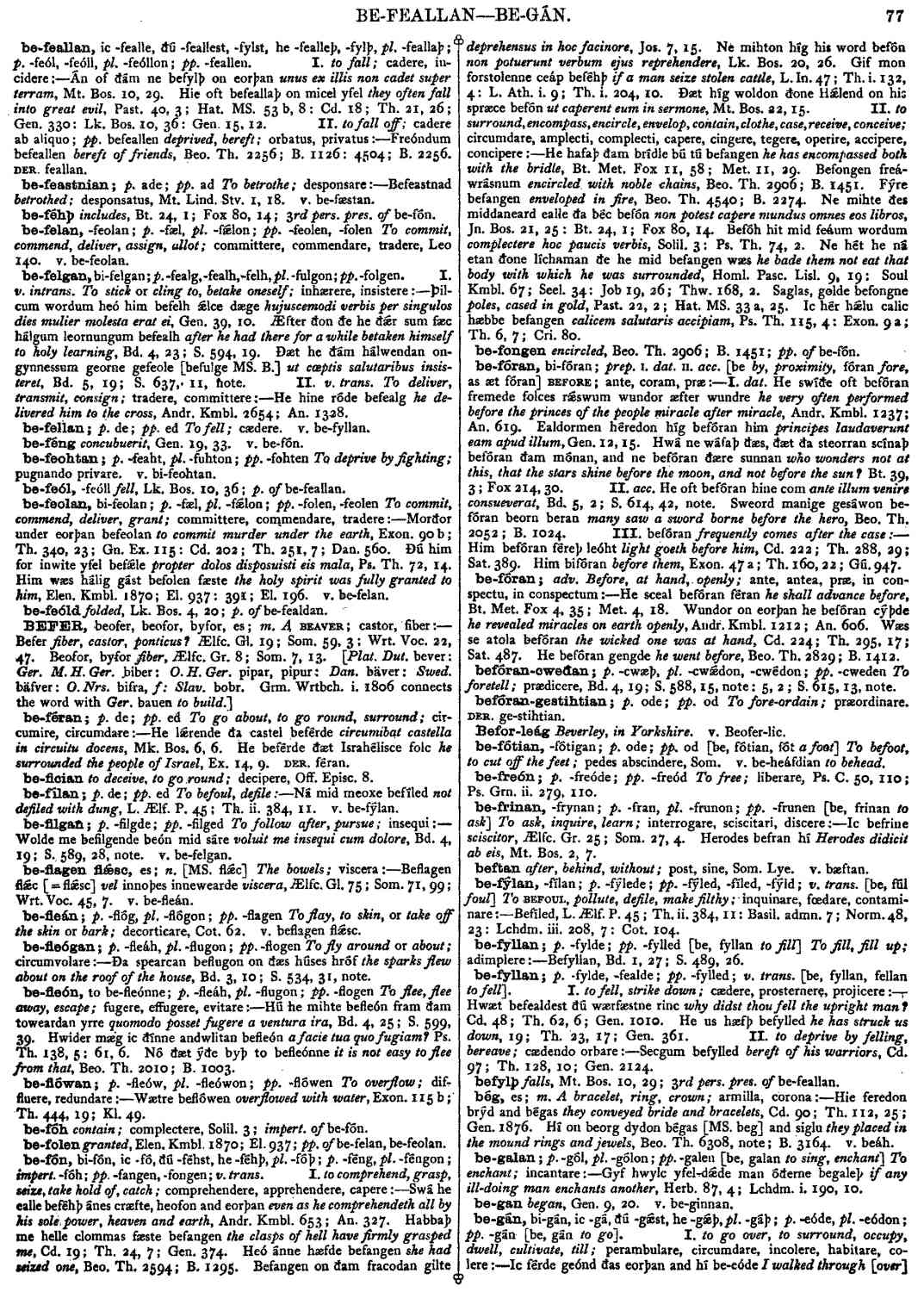be-gán
- verb [ anomalous ]
-
Ic férde geónd ðas eorþan and hí be-eóde
I walked through [over] the earth, and perambulated it,
- Job 1, 7 ;
- Thw. 164, 16.
-
Se ðe æcer begǽþ
he who goes over the land, a farmer
- Ælfc. Gr. 7 ;
- Som. 6, 44.
-
Mid ðý Rómáne ðá gyt Breotone be-eódan
dum adhuc Romani Brittaniam incolerent
- Bd. 1, 26;
- S. 488, 1.
-
Hí ðone búr útan be-eódon
they surrounded the dwelling without
- Chr. 755 ;
- Th. 83, 26, col. 1.
-
Plegan begán
to go to or attend plays
- Ors. 6, 2 ;
- Bos. 117, 9.
-
Ðæt mynster seó ylce cwén swýðe lufode and árwyrþode and be-eóde
eadem regina hoc monasterium multum diligebat, venerabatur, excolebat
- Bd. 3, 11 ;
- S. 535, 15 : 2, 13 ;
- S. 517, 1.
-
Synne, ða ic selfa be-eóde
sins, which I committed myself
- Ps. C. 50, 66 ;
- Ps. Grn. ii. 278, 66.
-
He begǽþ unmǽtas [MS. unætas]
he commits gluttonies
- Deut. 21, 20.
-
Begá ðé sylfne to árfæstnysse
exercise thyself in or devote thyself to piety,
- 1 Tim. 4, 7 : Bt. Met. Fox 8, 33 ;
- Met. 8, 17 : Ps. Th. 105, 12.
-
Ða ðe be-eódon ídelnesse
observantes vanitatem
- 30, 6 : 118, 23 : 119, 5 : 98, 4 : Bd. 2, 13 ;
- S. 517, 4.
Bosworth, Joseph. “be-gán.” In An Anglo-Saxon Dictionary Online, edited by Thomas Northcote Toller, Christ Sean, and Ondřej Tichy. Prague: Faculty of Arts, Charles University, 2014. https://bosworthtoller.com/3413.
Checked: 1